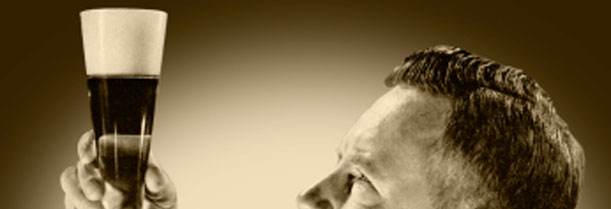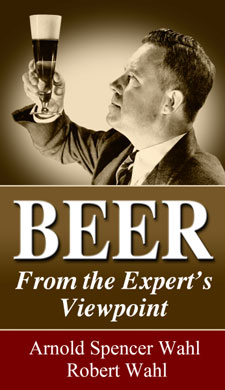
“The original extract is … the most reliable measure of quality, and the determiner of types of products of the brewing industry.”
That’s from an “expert’s viewpoint.” At least in 1937.
I’m a sucker for the classic reprint series that BeerBooks.com began releasing in 2005. Granted, my “needs” are a little different than yours. John Arnold’s “Origin And History of Beer And Brewing From Prehistoric Times to the Beginning of Brewing Science And Technology” is a delightful if sometimes clumsy read, but from my viewpoint packed with essential information (some fact checking needed). Arnold’s “History of the Brewing Industry and Brewing Science in America” is likewise essential, along with “Beer, Its History And Its Economic Value As A National Beverage.”
 The latest, “BEER From The Expert’s Viewpoint” was written to serve the new generation of brewers who went to work after Prohibition ended in 1933. Before Prohibition, the Wahl-Henius Institute of Fermentology in Chicago was the premier brewing school in the country at the beginning of the twentieth century. “The Wahl-Henius Handy Book of Brewing, Malting and the Auxillary Trades” (by institute founders Robert Wahl and Max Henius) remains an essential resource, both for the details about brewing as well basic chemical analyses of many American and European beers not seen elsewhere.
The latest, “BEER From The Expert’s Viewpoint” was written to serve the new generation of brewers who went to work after Prohibition ended in 1933. Before Prohibition, the Wahl-Henius Institute of Fermentology in Chicago was the premier brewing school in the country at the beginning of the twentieth century. “The Wahl-Henius Handy Book of Brewing, Malting and the Auxillary Trades” (by institute founders Robert Wahl and Max Henius) remains an essential resource, both for the details about brewing as well basic chemical analyses of many American and European beers not seen elsewhere.
Robert Wahl wrote the “Expert’s View” with his son Arnold Spencer Wahl, and it is full of his personal observations on the previous 50 years of brewing. The Table of Contents reveals the rather broad scope of the book, but the bits of cultural history Wahl throws in are as valuable as looking at what brewers knew, or needed to know, in 1937. If you want to better understand the beer culture in and around Bamberg, Germany, you can visit the area. If you want to better understand how American beer culture evolved immediately following Prohibition you need to find a time machine or read a book like this.
But back to the value of original extract, and what made for a quality beer.
The original extract gives a beer all its distinguishing features and contributes not only the quality but the character of the brew! The original extract is also responsible for the real extract (residual extract) which is the main substance in the beer or ale … Alcohol is of minor consideration for the brewer. He does brew some of his products to obtain that tang demanded by the consumer but the composition of the extract is responsible for the flavor, the taste, the smell, for the fragrance, savor, bouquet, smack, and aroma; the palate-fullness, foam fineness, lasting quality, adhesiveness; color, clarity, brilliancy, sparkle, effervescence and süffigkeit. All these look to the real extract for their origin which is in turn indebted to the original extract for its existence.”
I also learned about “hospital odor” but will spare you those details.
I’ve read the passage repeatedly w/o understanding it. Is “original extract” simply their term for wort?
No, the term for gravity.
Thanks. I never would have concluded that from the passage. Maybe I’ll finally learn to use a hydrometer.